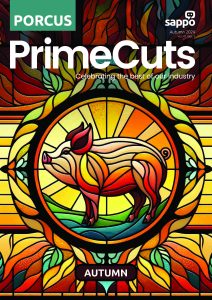Source: Prof Johan Willemse, SAPPO News July 2021: photo credit: ISG
July 2021 will be noted as an important turning point in the South African political economy, with the orchestrated looting and destruction of property and food supply lines, distribution centres, important transport infrastructure and an attack on our harbours’ IT systems that forced a standstill of imports and exports affecting a number of agricultural industries.
What was demonstrated very strongly, is the fact that government is not nearly in control of our safety and that the government and cabinet are not effective.
Communities were left to fend for themselves against looting and destruction of property and to get food supplies going.
This will obviously have a very negative impact on the expected economic growth for 2021. Some economic models suggest that it will reduce economic growth by at least 1% in GDP.
A number of families lost their businesses and the ability to employ people. It has destroyed a lot of investment confidence in the country and especially in KZN.
There is a lot of theories about the causes of the events. For us as an agri business community producing food for the country, we must ask what is the implications for our business strategies going forward.
There is some consensus that dissatisfaction with the current status of our economy and poverty played a role. From an economic perspective, there are three things that stand out for me.
Firstly, South Africans got poorer during the last ten years. This is evident in the declining GDP per capita in South Africa the last decade. The last two years we have been in negative territory. We are getting poorer.
There is absolutely no indication that the ANC government has the ability to break away from its current destructive economic policies. I can’t see how we are going to create economic wealth in the near future with these policies in place.
Secondly, unemployment is continuously increasing, which means crime increases. Formal unemployment has now reached the order of 40% and more that 18 million people are on social grants. This costs roughly R200 billion per annum.
The social grant system was extended in July 2021 to March 2022, providing R350 per month to an estimated 6 million people. We are nearing the point were people on social grants could be more than the working population and income tax payers!
Government is teetering on a fiscal cliff. Will economic reality force policy changes?
Thirdly, food insecurity is increasing in our country. This was made worse last year with the lock-down policy of the economy and 2,5 million people lost their jobs. Most have not regained employment.
The Food and Agricultural Organization (FAO) published a report in June 2021 indicating that the percentage of people that endured mild to severe food insecurity increased to 45% in South Africa during 2020.
In southern Africa 23% of children below the age of 5 years are stunted (permanently) because of lack of sufficient, affordable and nutritious food.
This situation is obviously not sustainable. As food producers we need to think about the fact that 45% of the population have mild to severe food security. We presently have macroeconomic policy that is not servicing society but mostly the political elite.
The overwhelming conclusion for me is that we must get away from the idea that government (in the different spheres), will solve our problems. We need to find a way in our communities to solve our own problems, for example with regard to security, unemployment and feeding the poor.
I am of the opinion that a number of government services will be privatised and run by communities in future. In my own community in the eastern Free State, the local community, not the municipality, mostly fixes water supply.
We will have to realise that we need to take charge in our own communities and business’s and work together and create a better future. Politicians and government will not do it.
The South African Pork Producers’ Organisation (SAPPO) coordinates industry interventions and collaboratively manages risks in the value chain to enable the sustainability and profitability of pork producers in South Africa.







